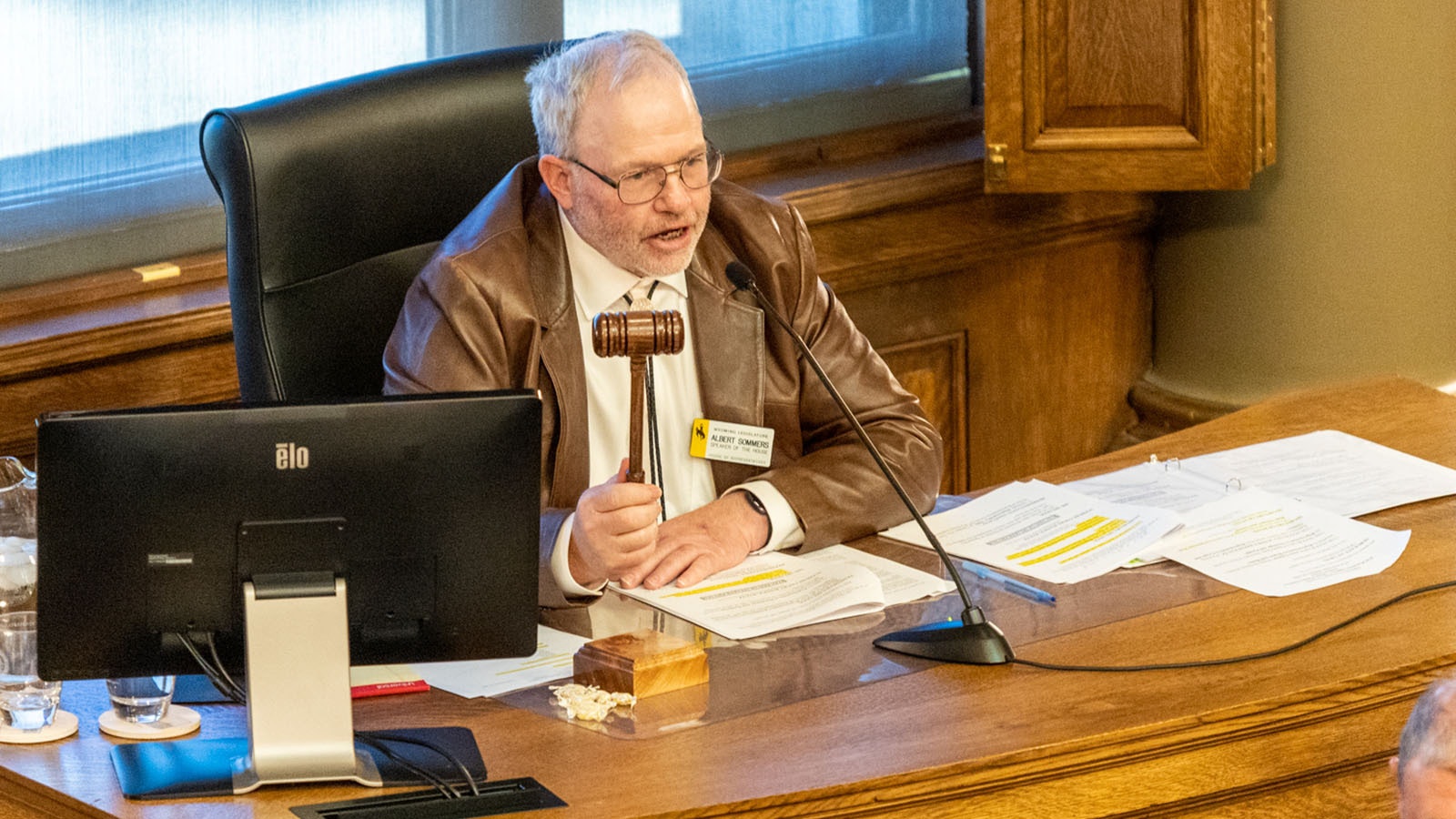An emotional plea from the Wyoming House’s most powerful member punctuated the sometimes-dire results for elderly or disabled victims of financial scams.
“Dog poo,” said a tearful Rep. Albert Sommers about how one such victim was left living in pet excrement. “While the people in that house were spending their money on drugs. And you’re going to say we can’t go down the path of trying something?”
Sommers’ address on the House floor Thursday came before Senate File 24 passed its first floor vote.
SF 24 would allow banks to freeze suspicious transactions made on behalf of people who are so elderly or disabled that they can’t manage their own money if red flags indicate a scam.
Bill proponents said the temporary hold will allow banks to stop elderly or disabled people from losing – in some cases – their entire life’s savings while authorities investigate suspicious transactions.
Opponents worried that the bill could open avenues for bank and government overreach into private transactions.
‘Profiling Our Transactions’
Rep. Mark Jennings, R-Sheridan, said the state should not be allowing banks to “begin profiling our transactions as they occur” unless people opt in, as they do with credit card scam protection programs.
Jennings also noted that while there were 22 fraud cases involving vulnerable adults in May 2022, none were prosecuted criminally.
In an earlier committee meeting, state authorities said such cases don’t always result in prosecution because the suspects often are family members and victims are trying to keep their family members out of trouble.
“I don’t deny that we have a problem here,” said Jennings, regarding fraud in Wyoming. “But we don’t even give law enforcement (agencies) the right to profile other people’s stuff without a warrant.”
‘Living In Excrement’
Sommers, R-Pinedale, pushed back on the statements of Jennings and others, emphasizing that five days’ hold is a small price to pay to give Wyoming’s vulnerable adults more financial security and protection, in some cases from their closest family members.
Sommers said a local DFS director he spoke with told him the horror story of an elderly or disabled person living in deplorable conditions.
Still holding back tears, Sommers said doing nothing isn’t acceptable.
“What we do is try things. If we screw up, we’ll fix it,” he said. “That’s what we do. We’re the Wyoming Legislature.”
Sommers then urged his fellow lawmakers to vote for SF 24.
Earlier in his testimony Sommers paused, saying that “I get emotional on this.”
Then Get A Court Order
The bank can extend the freeze from five days to 30 days if DFS or law enforcement, after looking into an incident, believes a scam is happening. However, the freeze can’t last longer than 30 days without a court order.
The bill also would require banks to report suspected scams against vulnerable adults to DFS, which then can involve law enforcement if appropriate. It would give banks immunity from being sued for such reporting and freezes – but only if the banks act in good faith.
“If your bank is messing around with you, the immunity clause doesn’t work,” said Rep. Barry Crago, R-Buffalo, who explained the bill from the perspective of a practicing attorney.





